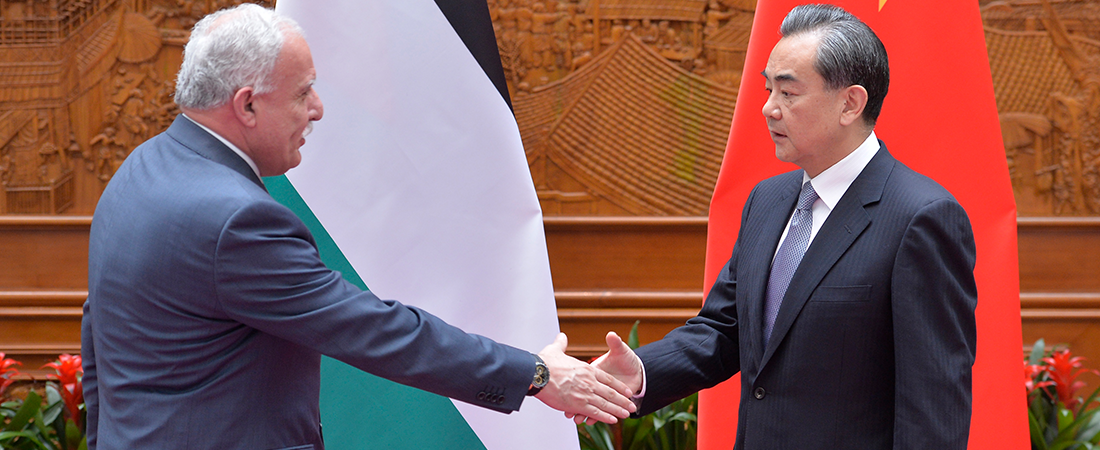The Shangri-La Dialogue
What happened: The Shangri-La dialogue, one of the most important security and defence conferences in the world took place in Singapore from June 2 to 4. In this summit ministers debate the region’s most pressing security challenges and engage in bilateral talks to come up with better approaches. Over 600 delegates representing nearly 50 countries took part in this pivotal conference.
What’s next: This year’s conference saw China turning down the United States’ request for official talks. Last year the two countries had a closed-door meeting lasting an hour but this year US defence secretary Lloyd Austin and China’s defence minister Li Shangfu merely greeted each other. Besides China-US relations, the war in Ukraine continued to be discussed among delegates, over a year after Russia’s invasion of Ukraine. At the end of the conference, the importance of communication between countries was stressed upon by Singaporean Defence Minister Ng Eng Hen.
China backs Palestinian statehood
What happened: On 14 June, Palestinian President Mahmoud Abbas was welcomed with full military honours at the Great Hall of the People in Beijing. President Xi Jinping stated that China is willing to play a positive role to help the Palestinians achieve internal reconciliation and promote peace talks with Israel. China and Palestine have historically shared good ties, Xi’s statement of support is a testament to that relationship, “The fundamental solution to the Palestinian issue lies in the establishment of an independent Palestinian state based on the 1967 borders with East Jerusalem as its capital,”.
What’s next: Researchers and critics have come out to say that while China might not be able to broker a peace deal within the nation, just trying to do so would be a win for them. China’s plan includes supporting full membership for Palestine in the United Nations as a sovereign and independent state with Jerusalem as the capital. Palestinians welcome Chinese support, both economic and diplomatic.
Monsoon arrives in APAC
What’s happened: Monsoon has finally arrived in Southern Asia after a delay bringing both relief and some problems. The monsoon showers bring in about 70 percent of the rains in India and the region is dependent on these rains to take away the dry summers and replenish the lush environment accounting for both economic and weather changes. Widespread rains have started on the southern coast of India but, with the longest delay in seven years.
What’s next: While it has been predicted that a normal monsoon can be expected this year, climate change has made monsoon more and more difficult to forecast. The delay and unpredictable nature of the winds brings disturbances in agriculture, the economy and development. Over the years, the number of climate-related events has also increased with the region facing multiple floods, storms and cyclones resulting in mass destruction and loss of life.
The Greek Shipwreck
What happened: On June 14, a tragic shipwreck took place off of the Greek Coast. A fishing boat carrying asylum seekers from Pakistan, Egypt, Syria, Afghanistan and Palestine (with an estimated number of 750 people onboard) sank approximately 47 nautical miles off the coast of Pylos Greece. The vessel left Libya and was en route to Italy. Only 104 people are known to have survived, more than 80 have been declared dead and an estimated 500 are still missing.
What’s next: Survivors of the shipwreck are said to have faced an unacceptable reception in Greece and continue to be held in deplorable conditions. According to reports, survivors have said that they were kept in a storage warehouse for two to three days before being transferred to an asylum registration facility at Malakasa, north of Athens. Inaction from authorities has induced widespread critique and protests in Greece and around the world, especially given the comparison between the recent Titan disaster. Pakistan, which had more than 300 people on board along with other African nations called for more protections for migrants at the U.N Human Rights Council following the incident.
PwC tax scandal in Australia (continued)
What happened: Last month, PwC in Australia was embroiled in a tax scandal where it’s international tax chief, Peter Collins leaked confidential government tax regulation information internally to help clients and grow contracts. Since the scandal went public, Chief Executive Officer Tom Seymour quit, nine partners were asked to take leave and the company flipped their governance board.
What’s next: In June multiple organisations in Australia such as the Australian central bank, Australian Super and the Australian Retirement Trust said it would exclude the firm from future contracts until it had rebuilt trust. Some of PwC’s biggest clients have been Australian federal departments, they have also been reviewing their ties with the company after the scandal was brought to light. About 130 partners and about 1750 staff, from the firm’s government consulting arm, will move to a new company, codenamed Bell, as part of a proposed buyout by private equity investor Allegro Funds priced at just $1. Most recently, twelve partners have been identified as being a part of the scandal, including Tom Seymour, the CEO. They have left or are in the process of leaving the company. On June 7th Australia’s senate began hearings for an inquiry into the government’s relationship with the consulting industry. Its findings will be published in September.

